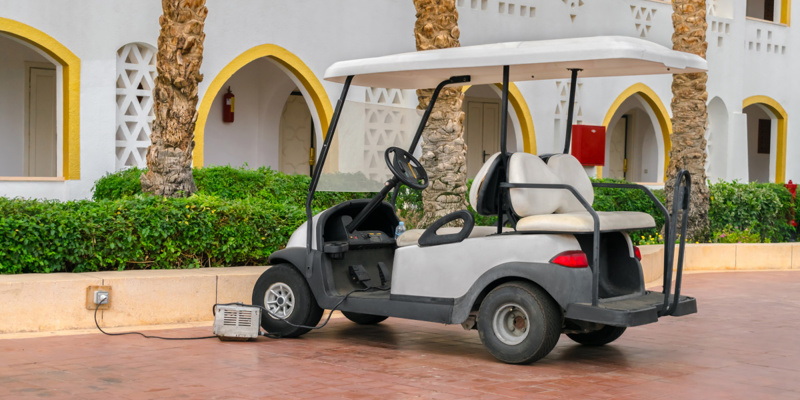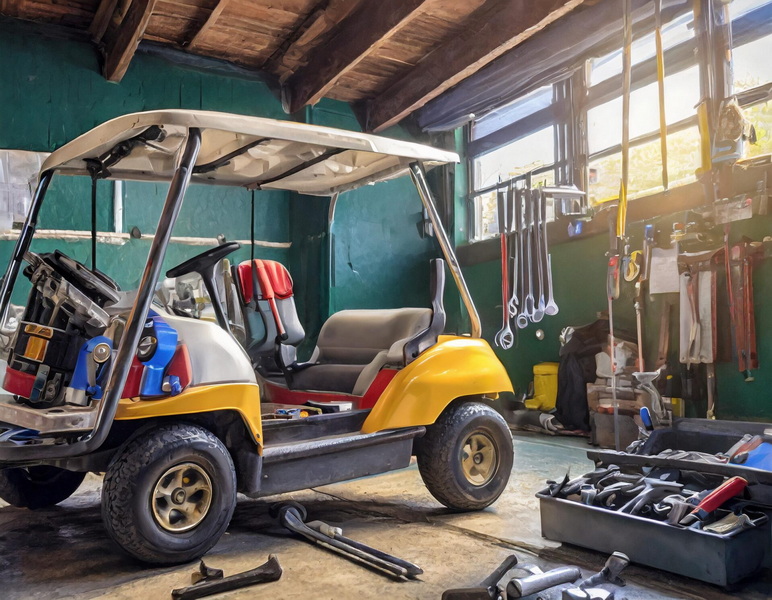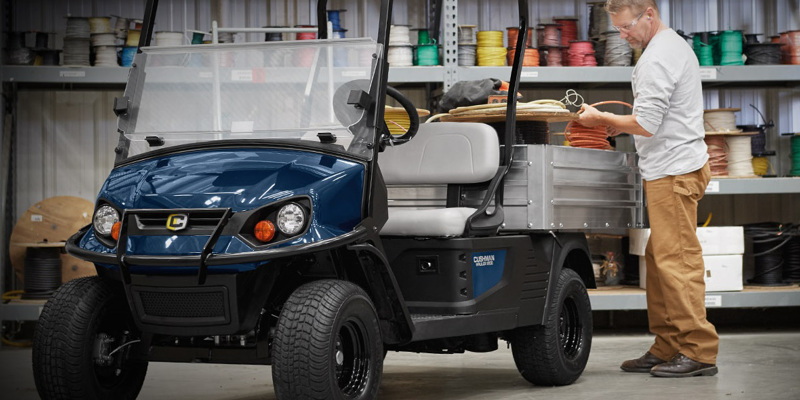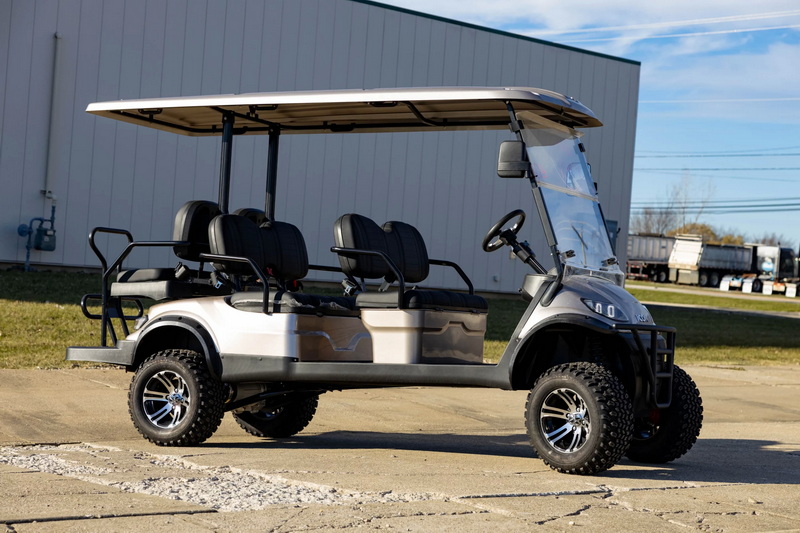Content Menu
● Understanding Your Electric Golf Cart
● Common Issues and Their Solutions
>> Battery Problems
>>> Dead or Weak Battery
>>> Battery Not Holding Charge
>> Motor Issues
>>> Motor Not Running
>>> Motor Running But Cart Not Moving
>> Controller Problems
>> Solenoid Issues
>> Charger Problems
>> Wiring Issues
● Preventive Maintenance
● When to Seek Professional Help
● Conclusion
● Frequently Asked Questions
>> 1. How often should I charge my electric golf cart?
>> 2. What's the average lifespan of an electric golf cart battery?
>> 3. Can I use my electric golf cart in the rain?
>> 4. How can I increase the range of my electric golf cart?
>> 5. Is it normal for my electric golf cart to make a humming sound?
Electric golf carts are a popular and eco-friendly mode of transportation on golf courses and in many communities. However, like any vehicle, they can experience issues from time to time. This comprehensive guide will walk you through the process of troubleshooting common problems with electric golf carts, helping you get back on the green in no time.

Understanding Your Electric Golf Cart
Before diving into troubleshooting, it's essential to understand the basic components of an electric golf cart:
1. Battery
2. Motor
3. Controller
4. Solenoid
5. Charger
6. Wiring
Common Issues and Their Solutions
Battery Problems
The battery is often the culprit when an electric golf cart malfunctions. Here are some common battery-related issues and how to address them:
Dead or Weak Battery
Symptoms:
- Cart won't start
- Reduced power or speed
- Short operating time
Troubleshooting steps:
1. Check the battery charge level using a voltmeter
2. Inspect battery terminals for corrosion
3. Clean terminals with a mixture of baking soda and water
4. Tighten all connections
5. Charge the battery fully
Battery Not Holding Charge
If your battery isn't holding a charge, it may be nearing the end of its lifespan. Most golf cart batteries last 4-6 years with proper maintenance.
Troubleshooting steps:
1. Check water levels in battery cells (if applicable)
2. Add distilled water if necessary
3. Perform an equalization charge
4. If issues persist, consider replacing the battery

Motor Issues
Motor problems can cause your golf cart to lose power or stop working altogether. Here's how to troubleshoot motor-related issues:
Motor Not Running
Symptoms:
- Cart doesn't move when accelerator is pressed
- No sound from the motor
Troubleshooting steps:
1. Check battery connections
2. Inspect motor brushes for wear
3. Test the solenoid
4. Examine the controller
Motor Running But Cart Not Moving
This issue often indicates a problem with the drive train or controller.
Troubleshooting steps:
1. Check for loose wires or connections
2. Inspect the drive belt or chain
3. Test the controller output
Controller Problems
The controller regulates power from the battery to the motor. Issues with the controller can cause erratic behavior or complete failure.
Symptoms:
- Intermittent power loss
- Jerky acceleration
- Reduced top speed
Troubleshooting steps:
1. Check all wiring connections
2. Look for signs of water damage or corrosion
3. Test controller output with a multimeter
4. If issues persist, consider replacing the controller
Solenoid Issues
The solenoid acts as a switch between the battery and motor. A faulty solenoid can prevent the cart from starting or cause it to lose power while driving.
Symptoms:
- Clicking sound but no movement
- Intermittent power loss
Troubleshooting steps:
1. Listen for a clicking sound when turning the key
2. Check solenoid connections
3. Test solenoid continuity with a multimeter
4. Replace if necessary

Charger Problems
A malfunctioning charger can lead to battery issues and reduced performance.
Symptoms:
- Battery not charging
- Partial charging
- Overheating during charging
Troubleshooting steps:
1. Inspect charger cord and plug for damage
2. Check charger output with a multimeter
3. Ensure proper connection between charger and battery
4. If issues persist, consider replacing the charger
Wiring Issues
Faulty wiring can cause a variety of problems, from intermittent power loss to complete failure.
Troubleshooting steps:
1. Visually inspect all wiring for damage or corrosion
2. Check for loose connections
3. Test continuity of suspicious wires
4. Replace damaged wiring as necessary
Preventive Maintenance
Regular maintenance can prevent many common issues and extend the life of your electric golf cart:
1. Keep batteries clean and properly charged
2. Check and maintain proper water levels in batteries
3. Inspect tires regularly for wear and proper inflation
4. Lubricate moving parts as recommended by the manufacturer
5. Store the cart in a dry, covered area when not in use
When to Seek Professional Help
While many issues can be resolved through DIY troubleshooting, some problems require professional attention. Consider seeking expert help if:
- You're uncomfortable working with electrical systems
- The issue persists after attempting the above solutions
- You notice signs of major component failure
- The cart has been in an accident or suffered water damage
Conclusion
Troubleshooting an electric golf cart can seem daunting, but with a systematic approach and basic understanding of the components, many issues can be resolved quickly. Regular maintenance and prompt attention to minor problems can prevent more serious and costly repairs down the line. By following this guide, you'll be better equipped to keep your electric golf cart running smoothly for years to come.

Frequently Asked Questions
1. How often should I charge my electric golf cart?
Answer: It's best to charge your electric golf cart after each use, even if you've only used it for a short time. This helps maintain battery health and ensures your cart is always ready for use.
2. What's the average lifespan of an electric golf cart battery?
Answer: With proper maintenance, most electric golf cart batteries last between 4-6 years. However, this can vary depending on usage patterns, charging habits, and environmental factors.
3. Can I use my electric golf cart in the rain?
Answer: While most electric golf carts are designed to withstand light rain, it's best to avoid driving in heavy rain or through deep puddles. Water can damage electrical components and lead to corrosion.
4. How can I increase the range of my electric golf cart?
Answer: To increase range, ensure your batteries are fully charged, maintain proper tire pressure, avoid unnecessary weight, and drive at a consistent speed. Regular maintenance of the motor and electrical system can also improve efficiency.
5. Is it normal for my electric golf cart to make a humming sound?
Answer: A light humming sound is normal for electric golf carts, especially when accelerating. However, if you notice any unusual or loud noises, it's best to have your cart inspected by a professional.











































